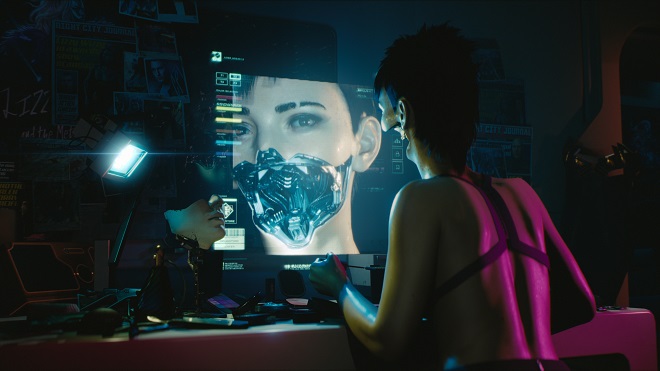Cognition Dissemination: A Reminder That Crunch Time Is Still Bad

Cyberpunk 2077 has been in development at CD Projekt Red for several years throughout this console generation, but this appeared to be the case for a very good reason. In addition to its earliest promotion being made for hiring purposes, the prolonged development period seemed intended to mitigate, if not entirely prevent, the development staffers having to rely on crunch time. Developers in the video game (and tech) industries tend to pursue crunch time when they don’t think a project will be completed by the deadline, so they’ll work long hours with little breaks to finish it. They’re brutal excessive overtime periods for employees and their families.
A light has been shined on how terrible crunch time can be in the last few years, following reports from game writers with testimonies from development staffers. Companies like Naughty Dog and Crystal Dynamics reportedly had, and likely have, terrible crunch periods for deadlines. But it’s evident how much of an effect these reports have had when other (mostly indie) studios have taken the opportunity to say they don’t have any crunch. Others don’t force their developers to crunch, but note the wording there. They tend to have team heads or other employees that goad others into engaging in crunch time through peer pressure.

There were reports of an inhumane crunch period at CDPR for the completion of The Witcher 3, but according to studio founder Marcin Iwiński in a discussion with PC Gamer in May 2019, they were making sure to avoid it for Cyberpunk 2077’s development. “We’ve been communicating clearly to people that of course there are certain moments where we need to work harder—like I think the [2018] E3 demo is a pretty good example—but we want to be more humane and treat people with respect. If they need to take time off, they can take time off. Nobody will be frowned upon if this will be requested,” Iwiński said. It sounded good on paper, but recent reports have shown how this plan didn’t stick, if it came to fruition in the first place.
Following news of Cyberpunk 2077’s delay from April 16th to September 17th, logic suggested that this would further mitigate the need for crunch time by giving the team a longer period to complete the game. This is sadly far from the truth. Just after the news broke, Kotaku reported that delays actually tend to increase crunch time. It’s typically not good for a publisher’s bottom line when one deadline is missed, so the desire to make the new date intensifies the pressure on developers to make sure the game is polished and feature-complete enough on time. Team members and their higher-ups will often figure that the best way to ensure that happens is — you guessed it — crunching.
This is exactly what CDPR is doing for Cyberpunk 2077, remarkably by brazen admission. During their question-and-answer conference call following the delay announcement, CEO Adam Kicińsk said crunch will be required for all developers at the company going forward. Kicińsk claims that they tried to limit it and be reasonable in this regard, but they’ve settled on requiring it. Given how deservedly scrutinized crunch time has been in recent times, it’s wild to see the CEO outright admit that the team will be put through a form of development hell.
There’s a chance it’s actually been happening all along. Despite the aforementioned promise from last year to mitigate the inhumane atmosphere, PC Gamer noted how comments on CDPR’s Glassdoor page show how little has changed. Former and current employees complained about low pay, poor work-life balance, and pitiful management, even compared to other developers in Poland.

CDPR knows what they’re doing here: They felt free to openly announce this despite the criticism the practice of crunching has received because they know they’ll suffer no repercussions for it. Do you think highlighting these practices has mitigated the hype gamers have for this game? It hasn’t. Even many criticizing them over this move will be there day-one. Little will change here unless the employees have the power to stand up for themselves, something intentionally made difficult in a society driven by capitalism. It’s nice that CDPR will have to pay them overtime thanks to Poland laws, but the employees would much rather have better work-life balance.
What makes this even worse is how there’s evidence suggesting crunch doesn’t actually work, and tends to reduce productivity. This isn’t too surprising when you further consider what it entails. Working long hours days at a time can reduce the focus of even the most skilled employees, and they’ll have less energy due to poor sleep, both of which will slow down their work. Employees will also become more hostile with one another due to both of those factors. Despite this, higher-ups continue to insist that putting in more work hours automatically leads to better and faster results, and will continue to in the near future.
I’m hoping Cyberpunk 2077 turns out well, but I’m also hoping the employees survive the crunch ordeal with their mental capacities intact. The same goes for the developers at the aforementioned Naughty Dog and Crystal Dynamics, as their upcoming games, The Last of Us Part II and Marvel’s Avengers, respectively, were also delayed. Crunch time is a scourge in the gaming and tech industries, but it’s tough to see it ending any time soon with current labor laws, thanks to ignorant higher-ups and, sometimes, the employees who treat all this as a fittingly-dystopian competition.





